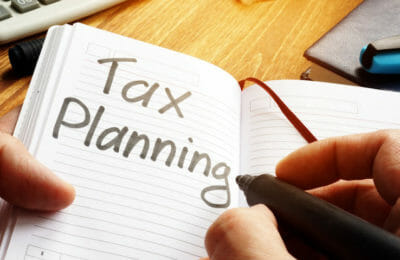The nights are drawing in, the log fires are burning and Guy Fawkes has put in his annual appearance. Which can only mean one thing – the 31 January self-assessment tax return deadline is just round the corner.
It’s a tedious job at the best of times, which is why smart people get their accountant to take care of their self-assessment tax returns. Yet, rather than leave filing until the last minute, there are lots of good reasons to beat the self-assessment tax return deadline and submit your return early.
Let’s take a look at them!
1. It gives you extra time to plan for your tax bill
You won’t know how much tax you have to pay until you’ve submitted your tax return. If you file it on the 31 January deadline, you’ll only have until midnight on that day to pay the tax you owe.
On the other hand, if you file your return now, you’ll have a few weeks left before you have to pay.
If you do your tax return now and realise that you’ll have difficulties paying the bill, then it also gives you more time to arrange a ‘Time to Pay’ agreement from HMRC. You can do this as long as you owe less than £30,000 and don’t have other outstanding tax returns (or owe other money to HMRC).
On a more positive note, if you file early, you’ll get any tax refund owing to you early. That has to be a good Christmas present!
2. It may help with your mortgage applicaction
If you are appying for a mortgage and need to provide evidence of your income then most mortgage lenders will need to see your Tax Overview form SA302. This lists income from all sources including your income from property. If your income has risen over the last year then your latest SA302 will reflect that and allow you to borrow more from the lender. Lenders are quite savvy now though and can see whether the figures on the SA302 are based on a submitted tax return or one that is still in draft. Only a fully submitted return will have “100% complete” at the top. Lenders won’t base their multiples on an SA302 form with 90% complete at the top as they will know they have not been taken from a tax return that has been finalised and submitted to HMRC.
3. You can avoid self-assessment tax return mistakes
If you do your tax return early, there’s less chance you’ll make a mistake. If you make errors, you could end up paying more tax than you need. Worse, you could end up paying less and get slapped with a penalty. HMRC will fine you up to 30% of the tax you owe for careless mistakes. These penalties can rise to 100% of tax owed if you deliberately underestimate your tax and try to conceal it – so don’t do that!
4. You can avoid late payment fines
If you keep putting off your tax return, you run the risk of missing the deadline. What happens if you get ill or suddenly have to care for a family member at the end of January? If you don’t file by the correct date, you’ll be fined £100 straight away. Then you’ll pay an extra £10 per day for the first three months you don’t submit. After three months, the fines keep ratcheting up – so don’t risk it!
How to beat January’s self-assessment tax return deadline
If you want to beat the upcoming deadline, then you need to get to work on your tax return as soon as possible. THP’s accountants can help you make the process as painless as possible, plus give you peace of mind that your return is accurate. So whether you want extra time to plan paying your tax bill, want to apply for a mortgages or simply want to avoid fines, get in touch today. Our tax return team is ready to help you!
About Karen Jones
Having worked for one of the world’s largest accountancy firms, Karen Jones uses her tax knowledge and skills to help clients obtain substantial reductions to their tax liabilities.
With an expanding portfolio of tax clients, Karen enjoys the variety her work brings her and particularly likes working with new businesses and people. With a growing number of tax clients, she frequently faces a variety of challenges and relishes the experience she gains as she solves them.
Karen likes the THP ethos: “I like the way the team has a professional, but friendly and down-to-earth approach – it creates a productive atmosphere that benefits everyone.”
Karen’s specialist skills:
- Personal Taxation
- Tax Efficient Planning
- Trust Administration












